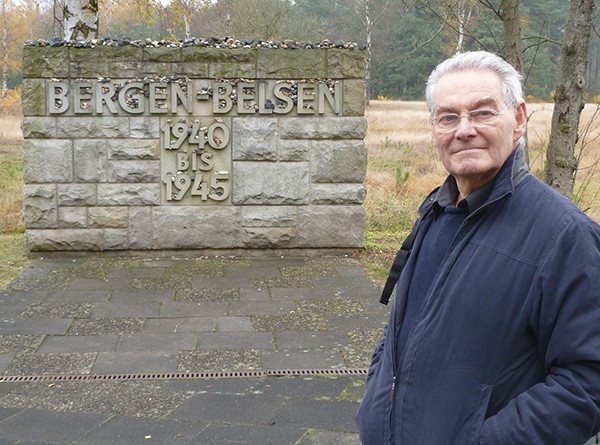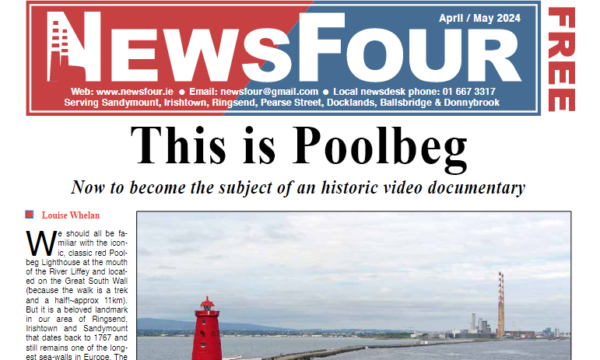
Pictured above: Tomi Reichental.
The Holocaust is undeniably one of the most horrific human tragedies of our times and it would seem impossible to draw any positives from this story, but that is exactly what one man is doing through his work.
Tom Reichental, is one of the few people alive today who is in a position to do this. A survivor of the Bergen-Belsen concentration camp now living in Ireland, Reichental gives educational talks to second and third level students, community organisations and has engaged in many other speaking engagements, including the Irish government and military, telling of his experiences and the essential lessons to be taken from them.
NewsFour attended one such lecture, where Reichental told us why this work is so important to him.
“My wife passed away 12 years ago not knowing anything about what happened to me. My children only found out when I started writing articles a few years ago. I think I owe it to the victims to tell what happened.”
Reichental brought us from his idyllic life as a child in a small village in Slovakia to the camp that held such horrors that no nine-year-old boy should see. He talked about how the President of Slovakia relied on the churches to spread much of the anti-Semitic propaganda, and of the first time he experienced hatred when wearing the yellow star as a small child. “That’s when I knew I was different and I asked myself, ‘what did I do wrong?’”
The juxtaposition of such cruelty against the kindness shown to him and his family by some neighbours from bordering towns is something that he still remembers. “The years between 1942 and ’44 were a game of hide and seek. The villagers would inform us when soldiers were coming and we would run to the cornfields. Some business owners hid their employees on their premises to great personal risk.”
The local priest, who was also a family friend in particular, sticks in Reichental’s head. “He didn’t preach hatred, only Christianity. He got us papers with a different family name and gave us lessons in Catholicism in preparation of our escape.” Alas, the family was picked up in October 1944 and transported to the Belsen camp in conditions Reichental described as hell on earth. “The moment the door closed on the train, our civilised life was over.”
Reichental has written about his time at the camp in his book, I Was a Boy in Belsen. He warns of the dangers of racism, saying, “The Holocaust did not start in the camps. It started in whispers. Everything that went wrong was blamed on the Jews. If the harvest failed, it was the Jews’ fault.”
He suggested that today is worse as we have constant access to information. The horrors of war-torn countries are shown to us as a form of entertainment, while back then no one knew of such things. He urges us not to be bystanders.
Reichental has recently been awarded the International Person of the Year award for his work. Reichental’s educational talks are facilitated by Holocaust Education Trust Ireland (HETI) and he is booked out till the end of 2016.
His third documentary about the Holocaust is due to be aired at the end of the year on RTÉ and his book, I Was a Boy in Belsen, is available from Books on the Green and all good bookstores.
For more information go to www.hetireland.org
By Maria Shields O’Kelly



